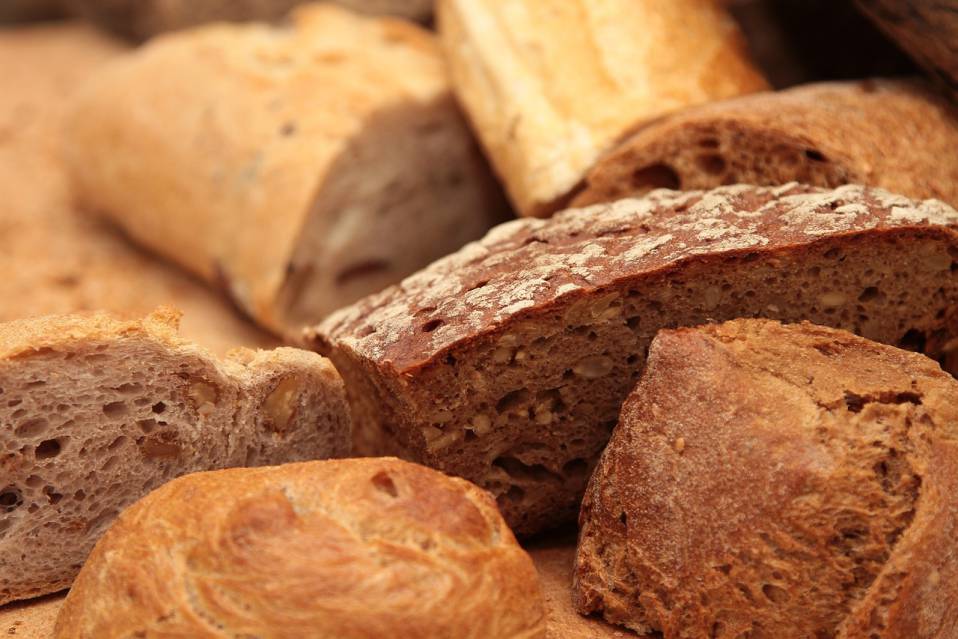Do you know where the phrase ‘Baker’s Dozen’ came from? Long ago, there lived a successful baker in Albany, New York, who owned a thriving business and a big family. One day, an ugly old woman visited the baker just as he was about to close his shop. The old woman wished to buy a dozen of the special Saint Nicholas cookies that were laid out on a tray. The good baker carefully counted out twelve cookies and handed them over to the lady.
The lady had a frown on her face. She counted the cookies again and questioned the baker as to why he had given her only twelve cookies when she had asked for a dozen. The baker looked surprised for a moment. Then he realized that a few of the other bakers in town would give an extra cookie or two to their customer. So the old woman was confused about how many were a dozen. But he was not one of them.
It took quite some time for the baker to make the old woman understand that a dozen meant only twelve and he had given her the right amount of cookies. When the old woman adamantly demanded an extra cookie, the baker told her that he had a big family to take care of and had no intentions of giving away anything free of cost. He curtly asked her to leave if she did not wish to take what was given to her.
The lady left the shop silently leaving behind all the cookies.
From then on, it appeared as though bad luck had entered the baker’s life. His cakes were stolen and the thieves were never caught. Week after week, his bread would either become too heavy and fall through the oven into the fire or rise high above and float out of the chimney. For the first time in his life, the baker was scared. He remembered the old woman and realized that he had been cursed.
The old woman once again came to the baker’s shop the next week asking for the baker’s dozen of the freshly made cookies. Misfortune had made him so angry that he cursed her and slammed the door against her face.
The week that followed was even more unfortunate than the preceding one. The bread always turned out either burnt or soggy, cakes and cookies lost their flavor. Word got around that the baker was getting old and the bakery was losing its quality. Soon the customers fell away and started visiting other bakers.
The baker was crestfallen. Finding no other way, he decided to seek the help and blessings of Saint Nicholas, the patron Saint of merchants to save his failing business.
He visited the nearby church and pleaded with the Saint to save him and his family from the curse of the old lady. After the prayer, he went back warily to his shop and began to bake a fresh batch of Saint Nicholas cookies, albeit with a feeling of emptiness in his heart.
As the cookies baked, numerous thoughts about the outcome of the cookies began to torture his already troubled mind. Moments passed swiftly as he waited, engulfed in worries of how the cookies would turn out. When it was finally time to take out the freshly baked cookies from the oven, he was surprised to see that they were perfectly baked.
After three weeks of misery, he was beyond relieved as he began to lay the successfully baked cookies on the tray where they could be seen from outside. As he looked up, he saw Saint Nicholas standing right in front of him.
The baker, weakened with shock, found it difficult to keep standing and slumped on the chair. He could not take his eyes off the Saint, who looked at him sympathetically.
Finding it difficult to speak, the baker buried his face in his hands and made a difficult effort to withhold the tears.
Saint Nicholas said, “My entire life was dedicated to serving the needy, and wiping away the tears of pain of those who suffered. God has always taught us thus. He has always been generous to us and shouldn’t we, His children be the same?”
The baker lay still, listening to the Saint’s soothing voice.
The Saint continued, “Is an extra cookie a big price to pay for the generosity that God showered on us?” Saying thus, the Saint vanished.
The baker was blessed by the Saint’s calming words, which seemed to wash away all the troubles of his life.
A few moments later, when the baker heard the door of his shop open, he saw the same old woman asking him for a baker’s dozen of freshly baked Saint Nicholas cookies. The baker, who was now a changed man, smiled at the old woman and counted thirteen cookies and gave them away free of cost.
The old lady looked at the baker for a moment and said that the spell was now broken. From then on, a baker’s dozen would always mean thirteen.
The baker had learnt his lesson and he began to generously give away from all that he baked. Thirteen to him would always mean A BAKER’S DOZEN.
—

